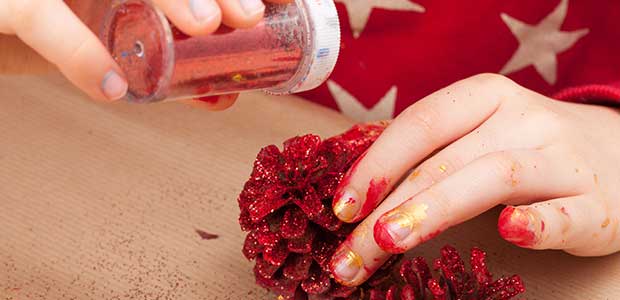
British Nurseries Ban Glitter Due to Environmental Impact
A group of nurseries in southern England has banned the use of glitter at their facilities in light of scientists drawing attention to the detrimental effects of microplastics like glitter on the environment.
- By Jessica Davis
- Nov 29, 2017
A group of nurseries in southern England has banned the use of glitter at their facilities in light of scientists drawing attention to the detrimental effects of microplastics like glitter on the environment.
Microplastics, such as most glitter, are fragments of plastic less than 5 mm (about .04 in.) in length. Their small size makes them easy for many marine animals to eat – one study reported that plastic was found in a third of U.K.-caught fish. Some reports estimate that there are up to 51 trillion total microplastic fragments in the world’s ocean.
“There are 22,000 nurseries in the country, so if we’re all getting through kilos and kilos of glitter, we’re doing terrible damage,” said Cheryl Hadland, director of Tops Day Nurseries.
Additionally, most glitter is made of aluminum and a plastic called PET. Dr. Trisia Farrelly, an environmental anthropologist at Massey University, has investigated how PET can break down in animal and human bodies to release chemicals that have been linked with the onset of cancers and other neurological diseases.
“Glitter is absolutely a microplastic and has the same potential to cause harm as any other microplastic,” said Alice Horton, research associate at the U.K.’s Centre for Ecology and Hydrology. “We all know that glitter can get everywhere and is highly likely to end up in the environment, either down the drain or by shedding from decorative items. So I think there’s no harm in banning it from nurseries for craft purposes given that its only purpose is ornamental.”
Craft glitter is not the only microplastic making the news lately. Microbeads, a microplastic found in products such as exfoliating scrubs, shower gels, and toothpaste, has also come under fire. In 2015, California became the first U.S. state to restrict all use of non-biodegradable microbeads in products, and the U.K. government has issued a ban on “rinse-off” plastic microbeads in cosmetics and personal care products to begin next year.
Horton said she was not sure how deeply banning the use of glitter would affect the amount of plastic debris in the oceans, but that “there is likely to be a benefit, in the same vein as banning microbeads.”
“On a small scale, one nursery banning it is unlikely to have any environmental impact, but it’s a good environmental statement to make, like one person choosing not to buy bottled water to reduce plastic bottle waste,” Horton said. “[It is] not going to change the world but [it] sets a target for others.”
About the Author
Jessica Davis is the Associate Content Editor for 1105 Media.